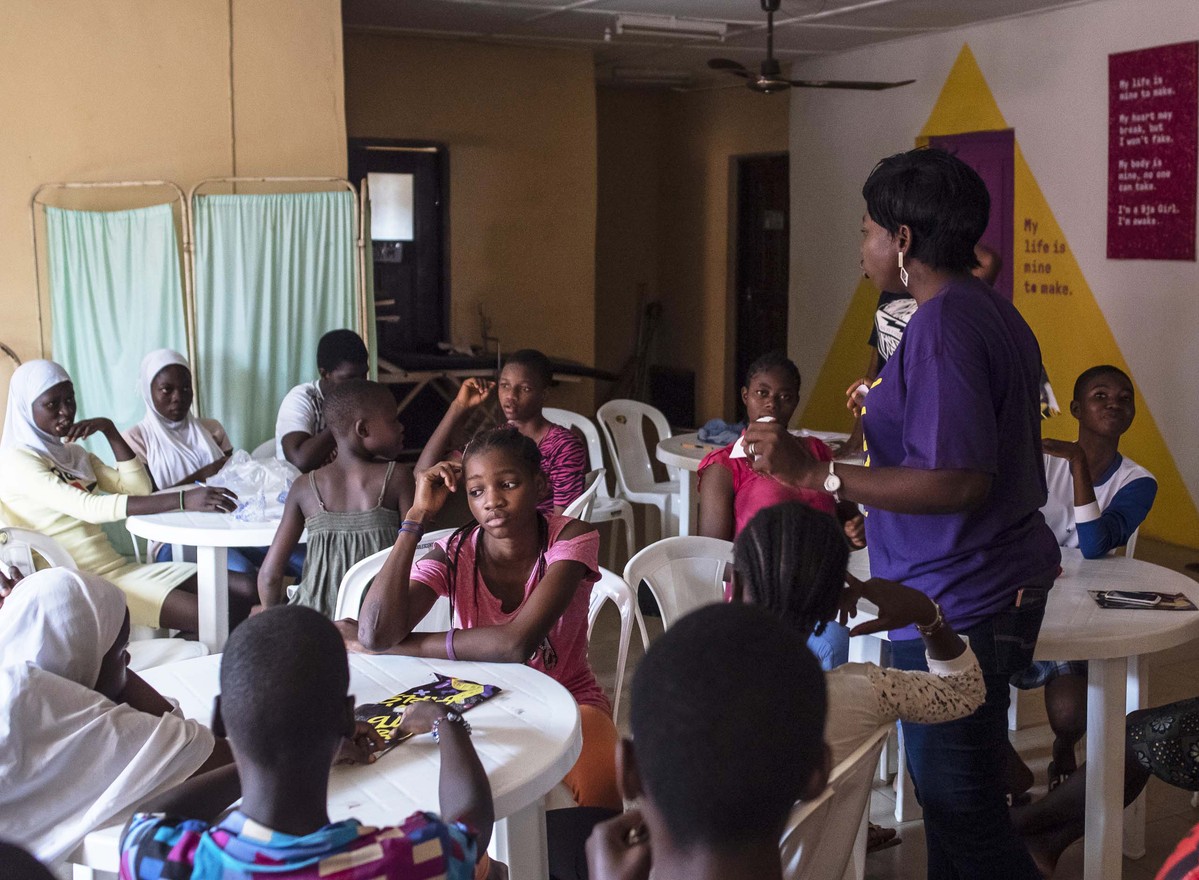Modupe Adegbite's grandfather had 22 children, while her father had nine. At the age of just 19, she has decided she wants no more than four.

Young girls listen to an educational talk about puberty at the Bada Primary Health Center in Lagos, Nigeria, on Nov 11. (Photo: China Daily)
"Why do you have so many children if you cannot feed them?" she asked.
It's a question many young Nigerians will face over the coming decades in Africa's most populous country, where a booming population combined with poverty and record unemployment have some fearing a demographic "time bomb".
Nigeria's population is expected to leap from 190 million today to 410 million by 2050 - and to almost twice that number again by the end of the century - according to the United Nations' World Population Prospects.
That would mean that in just 30 years, Nigeria will be the world's third most populous nation, behind only China and India.
For young women like Adegbite, who was born in Bada, a poor neighborhood in the economic capital Lagos, getting access to sex education and family planning can be difficult.
However, Bada, which lacks electricity and paved roads, does have a family planning center, which opened last year.
Condoms, the pill and hormonal implants are freely available at the local 9ja Girls center, run by the nonprofit organization Populations Services International.
"Most of the girls here are sexually active at 15, sometimes 14 years old," Naomi Ali of the 9ja Girls center said.
"They start very early. So they quickly become pregnant and they stop going to school."
Breaking taboos
At first, teenagers and young women in the area were suspicious, but Ali said hundreds now openly talk in the street about once taboo issues such as sexuality and romantic relationships.
"It's difficult, sometimes they believe that contraception will make them infertile, or the parents categorically reject it," she said.
Nigerian women have an average of 5.53 children, according to the World Bank, but the rate fluctuates greatly between major cities like Lagos and rural areas, where it reaches up to eight children per woman.
Mabingue Ngom, the UN Population Fund's regional director for West Africa, said the situation in northern Nigeria was "urgent".
"If we do nothing, we are going to face major problems," Ngom said.
"Of the 20 million young Africans who enter the job market every year, only two to three million find work."
Nigeria is fairly small compared to the world's other highly populous nations - at 923,000 square kilometers it's a 10th the size of the United States - and the fight for space is already causing conflict.
Clashes between farmers and herders over access to land and water left several thousand dead last year. Still, the idea that having more children means elderly parents will more likely be taken care of after retirement remains deeply rooted in Nigerian society.


